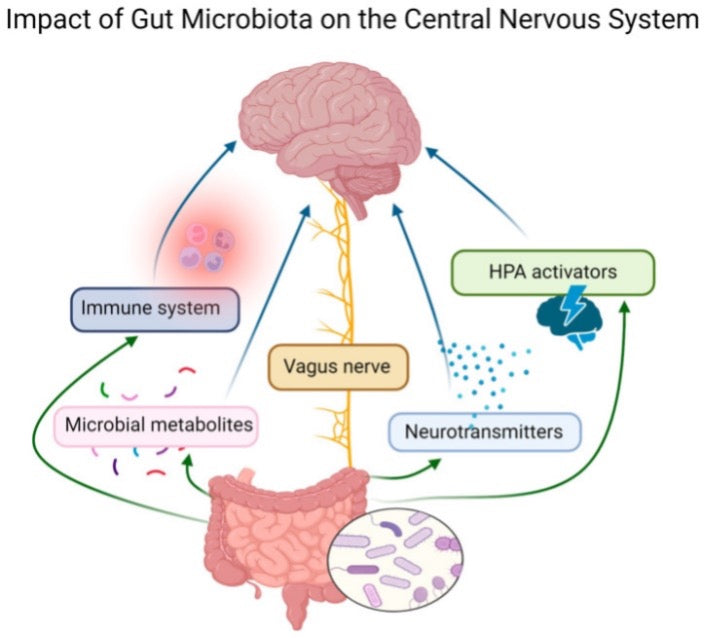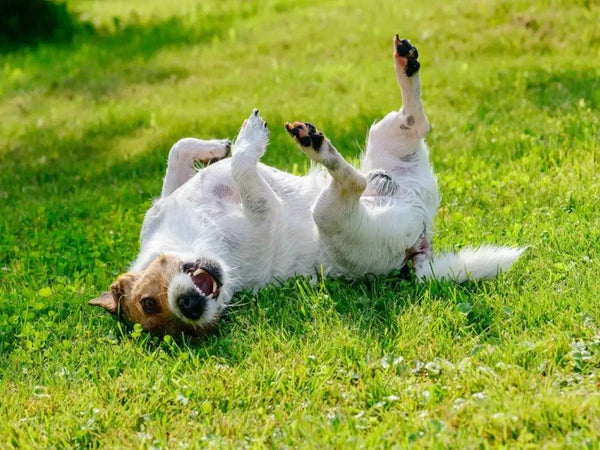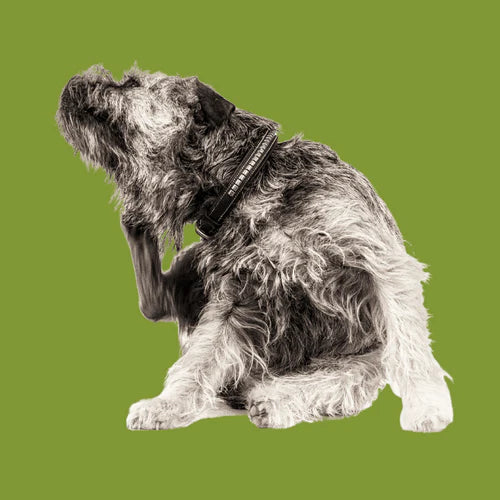You might think that as your dog gets older, it’s inevitable that they start to do a few odd things. But there’s actually a difference between normal ageing and pathological ageing – and it can start much earlier than we previously thought.
What’s normal for older dogs is a decline in learning and memory, social responsiveness, curiosity and attentiveness. What’s more likely to be pathological ageing and in particular canine cognitive dysfunction, aka doggy dementia, are clinical signs that can be summarised by the acronym DISHA[1]:
- Disorientation
- A decrease in social interactions
- Changes in sleep-wake cycles
- A loss of prior housetraining
- Increased anxiety
- Changes in their level of activity
Researchers at the Sydney University have also come up with a diagnostic questionnaire for canine cognitive dysfunction, that’s available here.
The same researchers have also concluded that canine cognitive dysfunction affects a bit over 14% of dogs over 8 years of age[2]. Research done with beagles, showed that it could begin as early as 6 years of age.
The proportion of dogs with doggy dementia takes a big jump once you get to dogs of 11 and 12 years of age, or over 15 years. Then, it affects 28% and 68% of dogs in those respective age brackets[3].
Unfortunately, the Sydney researchers also found that the vet-diagnosed rate of canine cognitive dysfunction is much lower than the real incidence rate – at about 1.9%. One reason is that people don’t recognise the signs, or think it’s just part of getting old, and don’t take their dog to the vet, so it doesn’t get diagnosed…
The other reason could be to do with vets themselves.
“People think it’s a normal part of ageing and getting old, but that’s wrong,” says the Brain and Mind Centre’s Associate Professor Michael Valenzuela, and a researcher into canine cognitive dysfunction and cognitive decline in humans.
“CCD is a specific medical condition with its own neurodegenerative pathology and long-term trajectory, and vets are beginning to appreciate this.”[4]
So, how might these DISHA signs manifest themselves? Well, some of the behaviour is similar to what humans with Alzheimer's and dementia display. That’s because age-related deficits in cognitive functions result from a similar neuropathology in dogs as well as in humans[5].
For example, human patients with cognitive impairment become easily confused and are prone to becoming lost, while a dog with dementia may pace or wander out of the yard.
You may also find that the dogs start to:
Disorientation
- Stand around in a daze
- Act kind of confused
- Appear to be startled for no reason
- Act forgetful
Social interactions
- Are less playful or interested
- May be more clingy
Sleep-wake cycles
- Pace at night
- Show ‘sundowner’ activity - sleep more during the day and remain awake, disoriented, and agitated throughout the night
House-training
- Pee or poo inside – often on rugs or floor coverings
- Doesn’t show they need to go outside
Anxiety and activity
- Show increased anxiety
- Bark more often
- Are less active
But what’s going on in the brain? And how could diet help?
Not only do dogs and people share the same behavioural symptoms as they get older, what happens on the biological level seems to be similar as well.
“Dementia in dogs and humans is characterized by a build-up of cerebral proteins known as amyloid plaques, linked to the death of large numbers of brain cells. This process typically begins in the hippocampus—the brain’s memory centre—which is why memory is often the first casualty of dementia. From there, the damage gradually spreads to interfere with general brain and bodily functions.”[6]
Other studies have highlighted that the level of oxidative stress plays a pivotal role in brain functioning, creating a delicate balance between free-radical production and brain protection or damage. Oxidative damage progressively accumulates in the aging brain; damaged molecules can lead to impaired neuronal functions and vulnerability to the development of Alzheimer’s disease[7].
The benefits of an antioxidant-enriched diet
Given this, a team of Canadian researchers undertook a very long study – over two years – to assess the impact of an antioxidant-enriched diet, as well as enrichment activities, plus the two combined[8].
The food was intended to reduce damage to tissue by reactive oxygen species as well as support mitochondrial function. It was also based on direct evidence of beneficial effects of dietary supplementation with antioxidants on cognition, in both aged rats and mice.
The researchers had also earlier shown evidence of increased oxidative stress in the aged canine brain, and in a shorter version of this research, found that short-term maintenance on an antioxidant fortified food improved discrimination learning in beagle dogs.
In this research, 48 old and 17 young beagle dogs were trained on a battery of cognitive tests over approximately 9 months. Performance on the baseline testing was then used to divide the aged dogs into four cognitively equivalent test groups of 12 animals each, with two treatment conditions—dietary fortification and behavioural enrichment.
What they found is that both discrimination and reversal learning ability decline progressively with advanced age in beagle dogs, but that the rate of decline can be delayed by both behavioural enrichment and antioxidant supplementation. Possibly the most important outcome of this study was the demonstration that the behavioural enrichment and the antioxidant supplementation condition combined were more effective than either alone.
In addition, training animals on particular tasks early in life can produce long-lasting changes in the animals’ abilities to learn those tasks later in life.
Our bestie balancer is antioxidant-rich as is our dog brain boosting supplement, The Einstein.
SOURCES
[1] https://pubmed.ncbi.nlm.nih.gov/22720812/
[2] https://www.sciencedirect.com/science/article/abs/pii/S1090023309004456
[3] https://pubmed.ncbi.nlm.nih.gov/11394831/
[4] https://www.sydney.edu.au/news-opinion/news/2015/12/04/world-first--university-of-sydney-scientists-cure-dog-of-dementi.html
[5] https://pubmed.ncbi.nlm.nih.gov/11191708/
[6] https://www.sydney.edu.au/news-opinion/news/2015/12/04/world-first--university-of-sydney-scientists-cure-dog-of-dementi.html



















